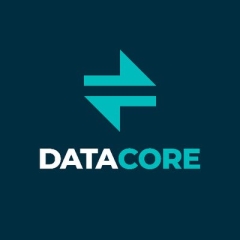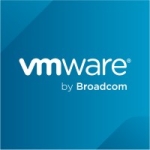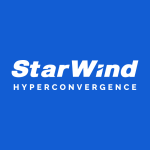What is our primary use case?
The solution is used for the provision of high performance and high availability block storage. By using auto-tiering, many applications can benefit from the high performance of current NVMe SSDs. At the same time, cold data is kept on low-cost storage resources.
The separation of data streams from different applications (e.g. SAP HANA, SQL server, virtualisation) also increases overall performance and availability.
The use of snapshots for data backup is already planned and scheduled. For this purpose, Veeam Backup 11 will be connected to SSY. The backup will then be LANless via Fibre Channel.
How has it helped my organization?
Among other things, we used SSY to bring a Splunk installation onto the existing central DataCore storage. Continuous data transfer rates of up to 2.6 GByte/s (16GB Fibre Channel, dual fabric synchronously mirrored systems over 20km) were also achieved.
The project was also much cheaper and easier to implement than any comparable solution.
The services already running (databases, virtualization) are not affected and run with the same performance as before the expansion.
Veeam is now configured to use storage snapshots. This reduces VMware snapshots to a minimum. The backup runs via Fibre Channel and relieves the LAN.
What is most valuable?
Synchronous mirroring was a prerequisite for the project. Two data centers are used, which are connected via two different WAN routes. 16G FC is used via the WAN. The "Systems managed Mirroring" feature was used for this.
Another feature that makes high performance possible is "pool striping", where accesses are distributed over a larger number of external data volumes (LUNs). The limiting factor for performance here is the external storage that is connected to the DataCore servers.
Snapshots are also an important feature. In connection with external applications, these enable an improvement in data protection.
CDP is an important feature for avoiding data loss in the event of ransomware attacks. You need more storage capacity, however, you get the possibility to return at any time and use the data saved up to that point. The recovery is much faster than with a classic restore.
With dedupe and compression, we can now save considerable capacity. An expansion of the capacity and thus the purchase of new licenses are thus avoided.
What needs improvement?
For an upcoming release, I would like to see a function that can manage the storage of multiple Datacore servers in a kind of "erasure coding". This would simplify scaling and make SSY more competitive with other providers.
NVMeoF should be implemented. This protocol will play a major role in storage infrastructure in the future.
Network protocols are becoming increasingly important. For future projects, protocols such as RoCE should be implemented. Especially in LAN infrastructures from 25G, a simpler and high-performance SAN infrastructure could be built here. The costs should be lower compared to Fibre Channel.
Improving support will be very difficult as it is already one of the best in the IT world.
Buyer's Guide
DataCore SANsymphony
December 2025
Learn what your peers think about DataCore SANsymphony. Get advice and tips from experienced pros sharing their opinions. Updated: December 2025.
879,371 professionals have used our research since 2012.
For how long have I used the solution?
I have been implementing SSY very successfully with many clients since 2008.
What do I think about the stability of the solution?
The system runs very stable. Through the use of server pairs, there is no more downtime. The storage service is always available, even if maintenance has to be carried out or a hardware defect has to be repaired.
What do I think about the scalability of the solution?
The performance can be scaled very easily by adding data devices of the desired performance class.
It is also very easy to expand the capacity. By adding low-cost storage, cold data can be stored there. This also ensures that the hot data can be accessed with high performance.
How are customer service and support?
Datacore offers one of, if not the best, technical support teams in the industry. Every request is handled very competently and in a short time.
The SEs are also very well trained and competent. They are always available for questions and are also very willing to give suggestions and information.
How would you rate customer service and support?
Which solution did I use previously and why did I switch?
We previously used Netapp Metro Cluster. We switched due to the costs for the infrastructure (Metro Cluster) were too high. The performance was also no longer sufficient. The solution was too inflexible.
How was the initial setup?
The implementation is somewhat more complex than with simple storage. In addition to the actual storage resources and the SAN infrastructure, the x86 server with Windows Server and SSY must also be installed.
The configuration of the storage is easy, as it is best to create many identical volumes and present them to the Datacore server.
These volumes are then included in the pool within SSY and centrally managed there.
The SAN configuration includes the construction of a FrontEnd, BackEnd, and Mirror layer. It is a little more complex, but not complicated.
The host systems access the resources via SSY, so these must also be configured in SSY. On the other hand, only the SSY servers need to be set up on the storage.
What about the implementation team?
Being a DCIE myself, I did the installation.
What was our ROI?
Since the environment is dynamic (for example, changes, extensions), the ROI is not easy to determine. However, the TCO is more favorable than with other solutions.
What's my experience with pricing, setup cost, and licensing?
Good planning is always very important. SSY is very flexible and can cover very different requirements. Therefore, it is important to keep a close eye on the requirements. If you have questions before implementation, ask support or a partner.
Also, pay attention to licensing. It may be cheaper to license a few TB more if you can make a jump in the discount scale.
Also note: Using DAS (internal storage) can be very cost-effective compared to external storage.
Which other solutions did I evaluate?
We considered different solutions such as Netapp FAS-Series, HP MSA, and 3Par.
What other advice do I have?
I am glad to have used SSY. The solution is very stable and performs well. It requires very little effort.
What you do have to do, however, is regularly apply Windows patches. To do this, the node has to be restarted. You should therefore always use a pair with synchronous mirrors to avoid downtime.
Which deployment model are you using for this solution?
On-premises
Disclosure: My company does not have a business relationship with this vendor other than being a customer.















